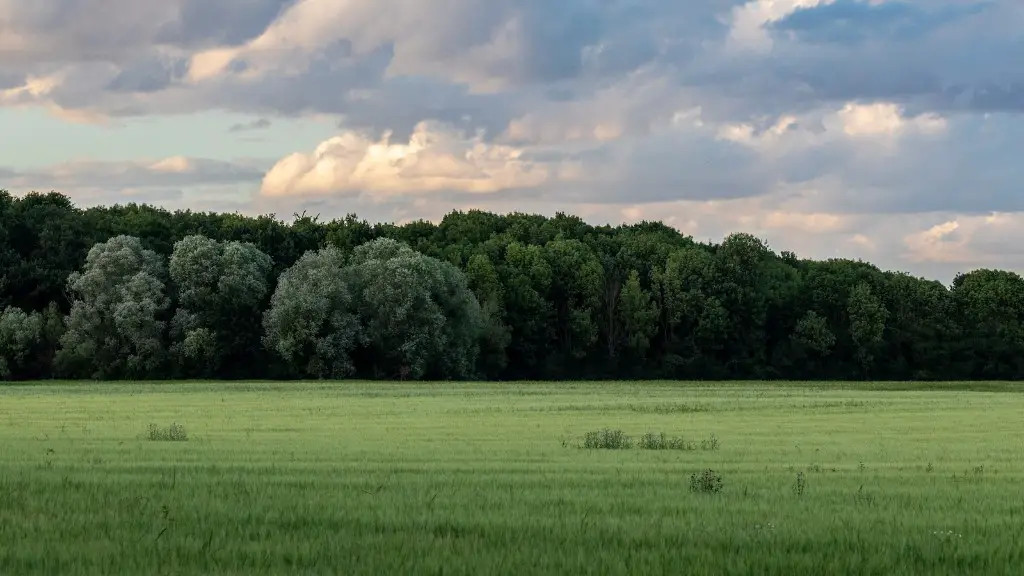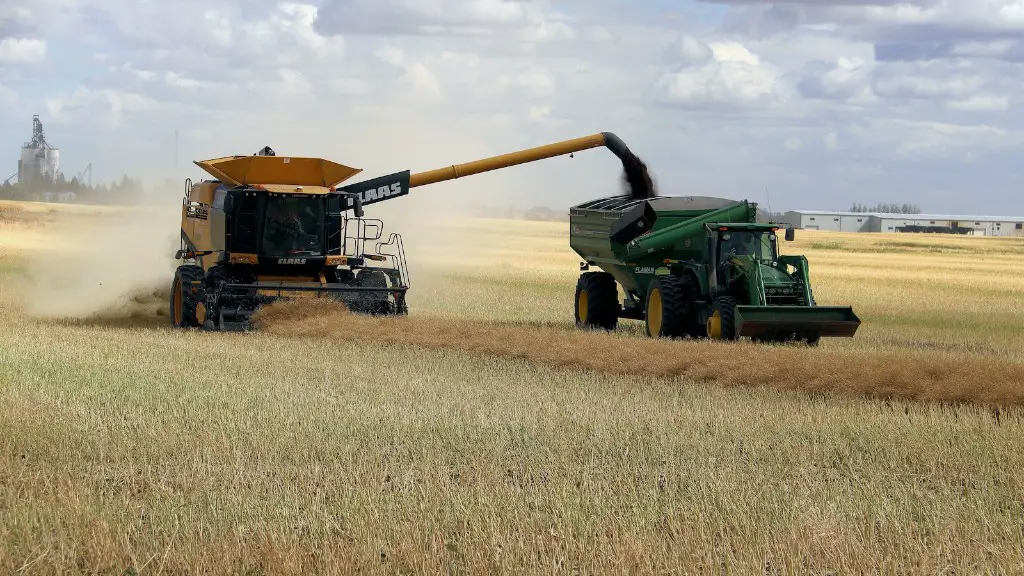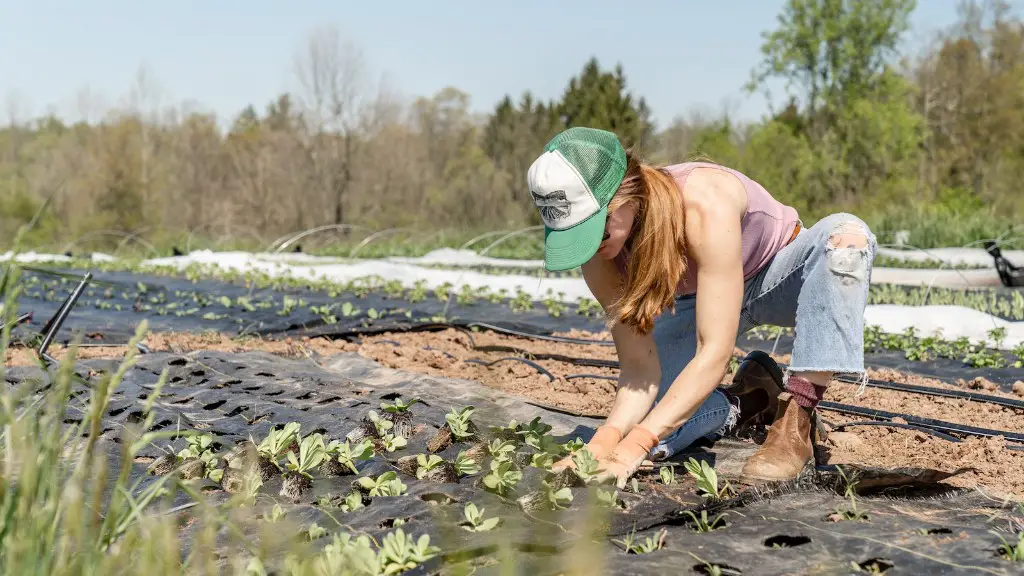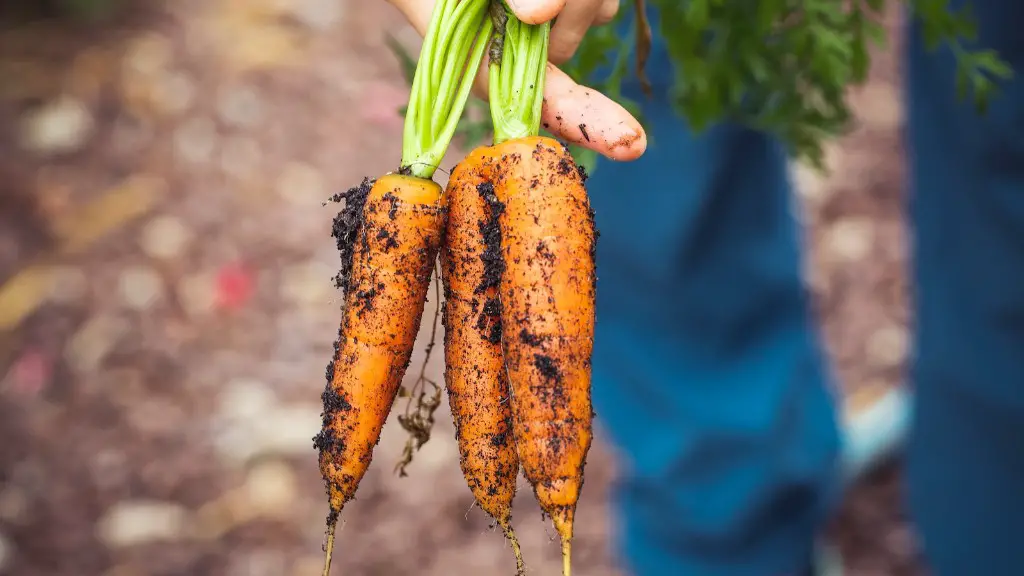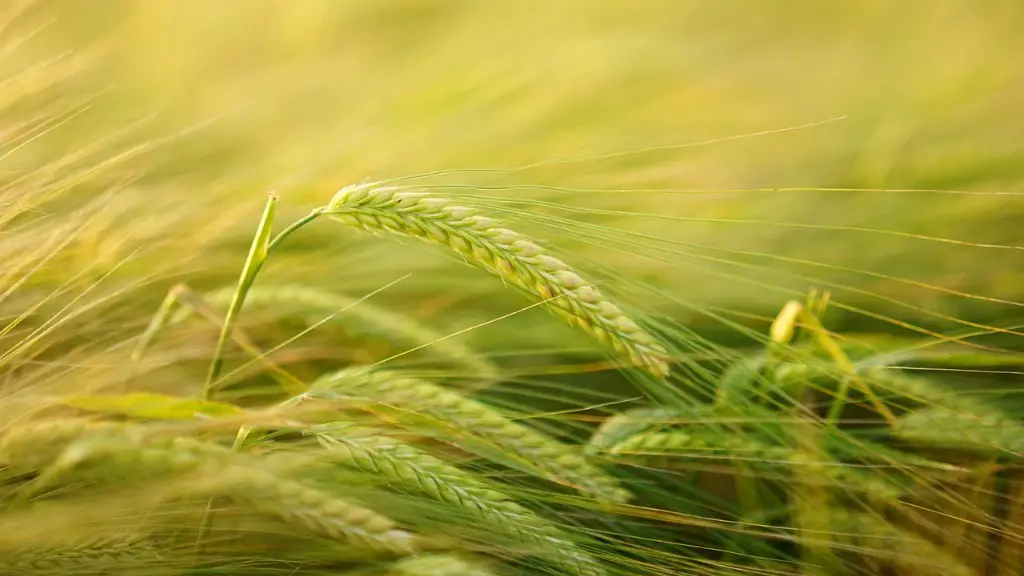Agriculture is the art and science of cultivating the soil, producing crops, and raising livestock. It includes the cultivation of the soil for the growing of crops and the raising of livestock (including dairy cattle, pigs, and poultry) for meat, eggs, or milk.
We get food, fiber, and fuel from agriculture.
What can you get from agriculture?
An agriculture degree can lead to a number of different career paths. Some of the most common include sales and service representative, forest products processing manager, farm labor specialist, forest ecosystem manager, and e-commerce specialist. Financial analyst and agricultural loan officer are also popular career choices for those with an agriculture degree.
The agricultural sector is a vital part of the US economy, contributing a significant share to GDP. The sector is responsible for producing the food that we consume, and for related industries such as food processing and agriculture-related manufacturing. The sector employs a large number of Americans, and is a major contributor to exports.
Why is it important to agriculture
Agriculture is essential for society for many reasons, but one of the primary reasons is that it provides the essential resources to keep a population fed. Without farming and agriculture, there would be no food for people to eat since they have to rely on hunting wild animals or growing crops to get their nutrients.
1. Agriculture is the main source of raw materials for many industries.
2. Agriculture is important to international trade.
3. Agriculture plays a big role in a nation’s revenue.
4. Agriculture provides employment for many people.
5. Agriculture is crucial to a country’s development.
6. Agriculture can help heal the environment.
7. Agriculture goes hand-in-hand with war.
8. Agriculture is a way of life for many people.
What are 5 important of agriculture?
Agriculture is extremely important for the development of any country. It is the backbone of the economy and provides employment to a large section of the population. Moreover, it is also a source of food for the people. Agricultural products are also used in various industries. Therefore, agriculture is of utmost importance for the development of any country.
The most important aspect of the agriculture industry is that it is the source of the world’s food supply. Agriculture is responsible for everything from harvesting crops to raising livestock, and the agriculture industry meets the daily food needs of vegetarians and carnivores alike. With the world’s population continuing to grow, the agriculture industry will need to continue to innovate and adapt in order to meet the demands of the future.
Why is agriculture important 10?
It is evident that agriculture is the backbone of many developing countries, including India. In India, agriculture accounts for approximately 18% of the GDP and employs around 54% of the workforce. Given the importance of agriculture in developing countries, it is critical that the sector grows at a healthy rate in order to spur economic development.
There are a number of ways in which agriculture can contribute to capital formation. One way is through increased productivity. This can be achieved by investing in technology and process improvements, which would lead to higher output per hectare. Another way is by ensuring that a larger portion of agricultural produce is marketed and sold, rather than being consumed at the household level. This would increase the cash flow available for reinvestment.
There is also a need for better infrastructure in the agricultural sector, including better roads, storage facilities and marketing infrastructure. This would enable farmers to get their produce to market quickly and efficiently, fetching higher prices.
All in all, it is clear that agriculture must play a key role in boosting capital formation in developing countries. By doing so, the sector can make a significant contribution to overall economic development.
Agriculture is one of the most important aspects of human life. It provides food, clothing, and shelter for people and helps them to enjoy a higher quality of life. Agriculture also supports many other industries, such as transportation and manufacturing. Without agriculture, the world would be a very different place.
What will happen without agriculture
Agriculture is one of the most important foundations of human civilization. It is the primary sector of the economy that produces the food and raw materials necessary for all other sectors to function. agriculture is also vital to the development of infrastructure and institutions such as cities, stock markets, banks, and universities.
The agricultural industry provides essential employment for people in rural communities. Not only do farmers keep everyone fed and watered, but they also play a vital role in the economy. The agricultural industry is a major contributor to the GDP of many countries and provides jobs for millions of people around the world.
What are the positive effects of agriculture on the environment?
The benefits of urban farming are becoming more and more acknowledged as the trend of urban farming starts to become quite popular. The benefits include lower greenhouse gas emissions, minimal transportation requirements, and reduced energy use for food production. As the benefits are becoming more and more acknowledged, the trend of urban farming is starting to become quite popular.
Agricultural land plays a vital role in providing food supplies and ensuring the delivery of essential ecosystem services. The sector provides a significant proportion of the world’s food, fuel and fibre needs, and is a key driver of economic growth and development. Agricultural land also supports a variety of other important ecosystem services, such as climate regulation, water purification and soil formation.
How does agriculture reduce poverty
The poorest people in society primarily benefit from agricultural growth through increased demand for their labour. Agricultural growth increases the probability of obtaining employment, and it may increase the salary level, thereby increasing the income that can be accrued from selling labour. This can provide a much-needed boost to the incomes of the very poorest people in society, who are often the most vulnerable.
A sustainable food system is one that respects natural resources and makes a positive impact on people and communities. Such a system would be beneficial for everyone involved – from growers and producers to consumers and retailers. It would be good for the environment, and it would also support local economies and communities.
What impact does agriculture have on humans?
Farmers have an increased prevalence of many acute and chronic health conditions including cardiovascular and respiratory disease, arthritis, skin cancer, hearing loss, and amputations. Other health outcomes have been little studies in the agricultural workplace, such as stress and adverse reproductive outcomes.
Farmland is essential for the production of food and for the conservation of natural resources. It provides food and cover for wildlife, helps control flooding, protects wetlands and watersheds and maintains air quality. In addition, new energy crops grown on farmland have the potential to replace fossil fuels.
Conclusion
The most important things we get from agriculture are food and fiber.
The benefits of agriculture are far-reaching and impact every single person on the planet. Without agriculture, we would not have any food to eat. The food we do eat would be much less nutritious. We would also be without many of the everyday items that come from crops, such as cotton for our clothes, paper, and even fuel. Farmers work tirelessly to provide us with the food and materials we need, and we should be grateful for all they do.
